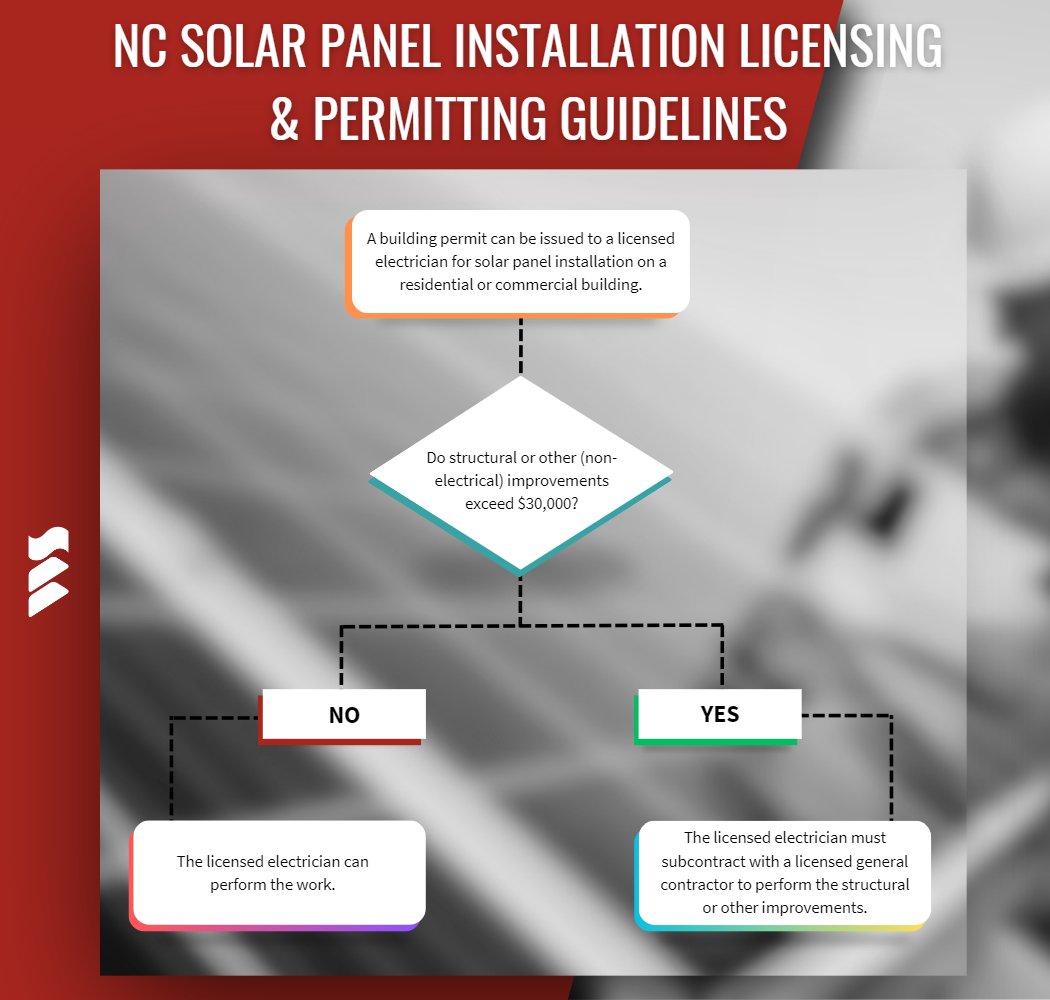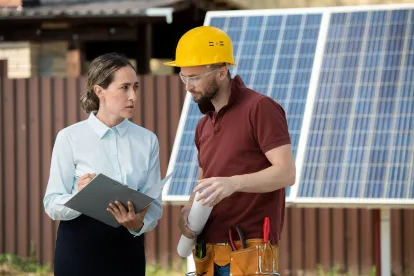Solar panel systems on residential homes have greatly increased in popularity over the last several years with the boom in renewable energy.
This brought questions and a degree of confusion regarding both licensing and permitting for such projects. This led to new guidelines from the relevant North Carolina licensing boards, which attempt to address some of these issues.
Solar Panel Building Requirements
Solar panel systems are formally known as Solar Photovoltaic Systems ("SPVP"). In North Carolina, a building permit is required for any construction, installation, repair, replacement, or alteration to a building or real property costing more than $20,000. See N.C. Gen. Stat. § 143-138(b5). Many local building departments have increased that amount to $30,000, which is the same dollar threshold that triggers the requirement to have a general contractor's license to perform the work. Building permits for projects over the $30,000 threshold must be pulled by licensed general contractors, with very few exceptions.
Additional Trade Permits
In addition to a building permit, separate trade permits are typically required if the project involves electrical, plumbing, or mechanical work, regardless of the value of the work to be performed. For example, an electrical permit is required regardless of the value of the work if the work involves the addition, replacement, or changes to electrical wiring, appliances, or equipment other than a like-kind replacement of electrical devices and lighting fixtures.
This permitting structure begged the question: May someone licensed as an electrician, but not as a general contractor, pull a building permit for a residential solar panel project? Or is a licensed general contractor required to pull the building permit for a residential solar panel installation costing more than $30,000? The North Carolina Office of State Fire Marshall ("OSFM"), which administers the North Carolina State Building Code, and the relevant licensing boards have provided guidance on this issue.
New Solar Panel Installation Licensing & Permitting Guidelines
In the summer of 2022, The OSFM, the North Carolina Licensing Board for General Contractors, and the North Carolina State Board of Examiners of Electrical Contractors cooperatively published Solar Panel Installation Licensing & Permitting Guidelines ("Guidelines"). The new Guidelines provide:
The North Carolina Board for General Contractors (the Board) considers SPVP installations for residential or commercial buildings to be electrical work unless the scope of the work to be performed includes structural or other improvements that are $30,000 or more and consist of work that is typically performed by licensed general contractors regulated by the Board.
. . .
SPVP installations of any value require an electrical contractor license.
Thus, building permits for solar panel installations, whether for residential or commercial buildings, can now be issued directly to a licensed electrician. An accompanying electrical permit would also be required, but of course, can be issued to the licensed electrician as well.
The only caveat to this new rule is if the cost of the other improvements (i.e. the non-electrical work) exceeds $30,000.00. Presumably, the cost of the other improvements would include the cost of alterations or attachments to a home or building to accommodate and secure the solar panels. If the cost of such other improvements exceeds $30,000.00, a licensed general contractor must perform that portion of the work.
However, the Guidelines provide an important additional clarification. If a general contractor must be involved because the cost of the other improvements exceeds $30,000, the general contractor is not required to pull the building permit. The licensed electrician can still pull the building permit, and the general contractor can act as a subcontractor to the licensed electrician. This additional clarification is significant because typically, the licensed general contractor must be the one to both contract with the project owner and pull the building permit.
Although the Guidelines were published in 2022, there remains some inconsistency in their application among local building and inspection departments. For instance, some local building and inspection departments still require a general contractor to pull the building permit for solar panel projects exceeding $30,000 in value. Others are now allowing licensed electricians to pull such permits.
The Guidelines are summarized in the chart below:





 />i
/>i

